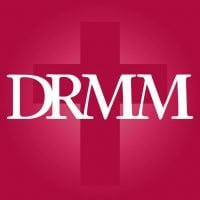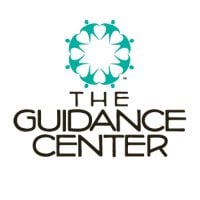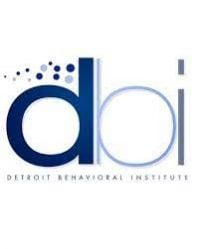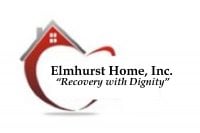Professional Psychological & Psychiatric Services - Detroit
Drug Rehab Center in Detroit, Michigan
Professional Psychological & Psychiatric Services - Detroit provides psychiatric and psychological medical care for adults and children with mental health, substance abuse, and addiction issues, offering specialized assessments, counseling, and treatment with a holistic approach.
About Professional Psychological & Psychiatric Services - Detroit in Michigan
Professional Psychological & Psychiatric Services - Detroit is a private psychiatric and psychological medical practice based in Detroit, Michigan. The practice serves adults and children who need help with mental health, substance abuse and addiction issues. They are committed to providing excellent care with a holistic approach to mental health, and they offer specialized assessments, counseling, and treatments to their clients.
Professional Psychological & Psychiatric Services - Detroit provides a wide range of services to address substance abuse and addiction. They offer customized evaluation and treatment planning, individual counseling, family therapy, support groups, and other therapies. The therapists are experienced and knowledgeable in helping people who are struggling with substance abuse understand the root of their addiction, provide strategies to overcome it, and support them in successfully achieving their recovery goals.
The facility is accredited by the Joint Commission, has a full license from the Michigan Department of Community Health and has won many awards for the excellent staff and services offered. Professional Psychological & Psychiatric Services - Detroit also offers an aftercare program for those who have completed their inpatient treatment. This program provides continuing care to ensure individuals have the best chance for lasting sobriety.
Genders
Ages
Modality
Additional
Accreditations

CARF
The Commission on Accreditation of Rehabilitation Facilities (CARF) is a non-profit organization that specifically accredits rehab organizations. Founded in 1966, CARF's, mission is to help service providers like rehab facilities maintain high standards of care.
Conditions and Issues Treated
Opioid addiction treatment should be done in a medically supervised drug rehab. While taking opioids, users will typically use other substances to enhance the effects of opioids or to reduce the adverse effects of opioid use. Opioid addiction treatment will include detoxification and drug rehab counseling to help both the user and their loved ones learn how to live a successful sober lifestyle.
Treatments such as methadone, buprenorphine, and naltrexone are three medications that can help treat opioid addiction. These drugs work on the brain’s pleasure center and reduce cravings and the effects of illicit opioids such as heroin. These drugs can be either given orally or by injection. Individual drug rehab counseling sessions can be helpful to discuss any questions or concerns with the drug treatment program. This counseling will also help the user set goals for when they finish drug rehab.
Opioid addiction recovery is a long process. Many of the changes to the brain caused by opioid use cannot be undone, but with time and the proper treatment, a person can return to normal function. After detox, treatment will include drug rehab counseling and entering a halfway house or sober living community. Aftercare is critical to long-term recovery, as it helps the user avoid relapsing and entering back into drug rehab.
Levels of Care Offered
This center offers a variety of custom treatment tailored to individual recovery. Currently available are Drug Rehab, Dual-Diagnosis, Intensive Outpatient, Outpatient, with additional therapies available as listed below.
Intensive outpatient treatment is a type of comprehensive addiction care. Unlike conventional residential treatment programs, the patients live at home during the recovery process. This means that one can continue working and caring for their families. These also allow people to keep pursuing their studies while also working on their sobriety.
Outpatient treatment can help one transition to normal life from the round-the-clock supervision and treatment available during inpatient treatment. It is an excellent tool to ensure long-term recovery. However, it is essential to note that intensive outpatient treatment in itself does not remove patients from the real-world setting. This means there’s always a higher risk of coming across environmental triggers. To further prevent relapse, an outpatient treatment center should be able to provide ongoing support services.
Once the patient is enrolled in an intensive outpatient treatment program, they will be expected to attend therapy and group meetings daily for a stipulated period. The frequency and duration of each session will depend on the patient’s needs and level of addiction. This can help curb the habit and deal with underlying issues that led to it. Most of these professional treatments are designed to allow patients to structure their daily schedules in a way that is conducive to recovery.
“Outpatient treatment is ideal for those who have a lower intensity addiction. It’s also suitable for those with a supportive environment and those on a tight budget.
Outpatient treatment can be considered the lowest intensity level of addiction treatment. It is ideal for early phase addiction or lower intensity addictions. It may involve weekly sessions instead of daily. Peer group support, 12-step programs, and individual counseling may still be used and anti-addiction medication.
Therapies & Programs
No single treatment works for all addicts; therefore, the goal of treatment and therapy should be to find what works best for each individual. Some people requiring addiction treatment may only need a few weeks of inpatient care. Others will require long-term residential care. Tolerance and withdrawal levels vary from person to person and thus affect the intensity of the treatment needed.
If an individualized approach to treatment and therapy is not offered, addicts may fail to reap benefits from their efforts. Professionals must customize plans according to their patient’s needs, limitations, and strengths. The goal of all forms of addiction treatment should be for addicts to find healthy ways to cope with their addiction and its underlying causes.
Couples therapy for drug addiction is a unique form of therapy that allows family members to work through the emotional issues of their loved one’s addiction together. Family members can support each other while learning how to cope with the addiction and encourage healthy changes.
Accordingly, couples therapy for drug addiction is designed for an addict and their significant other or spouse. The two will work with a therapist to learn how the addiction affects themselves and the relationship and how to break the negative patterns of behavior that may have developed.
Drug addiction can destroy a person’s life, as well as their family and friends. The loss of one’s ability to choose how to live and behave often leads the addict into depression, anger, guilt, and many emotional problems.
The therapies usually include siblings, children, and parents who are involved in their daily lives. These sessions are vital because they address past issues that may have hampered an addict’s or alcoholic’s recovery and provide support at a crucial time!
One of the most critical aspects of family therapy is helping addicts’ loved ones see their situation in a new light. It’s also one of the most challenging things a family can do when a loved one struggles with addiction or alcoholism.
Group therapy is held in a safe, controlled setting where patients can feel comfortable sharing their struggles and gaining perspective through shared conversations. It takes place in a group rather than one on one to prevent feelings of isolation or being unique in their situation while creating an environment for addicts at Professional Psychological & Psychiatric Services - Detroit to develop fellowship, accountability, and support. Group therapy is an important tool in recovery that prevents cravings that prompt a return to active addiction.
Payment Options Accepted
For specific insurance or payment methods please contact us.
Is your insurance accepted?
Ask an expert, call (888) 674-0062
Professional Psychological & Psychiatric Services Associated Centers
Discover treatment facilities under the same provider.
- Professional Psychological & Psychiatric Services - Saginaw in Saginaw, MI
- Professional Psychological & Psychiatric Services - Lansing in Lansing, MI
- Professional Psychological and Psychiatric Substance Abuse Services in Lansing, MI
- Professional Psychological and Psychiatric Substance Abuse Services in Saginaw, MI
Learn More About Professional Psychological & Psychiatric Services Centers
Additional Details
Specifics, location, and helpful extra information.
Detroit, Michigan 48202 Phone Number(313) 874-8715 Meta DetailsUpdated November 25, 2023
Staff Verified
Professional Psychological & Psychiatric Services - Detroit Patient Reviews
There are no reviews yet. Be the first one to write one.
Detroit, Michigan Addiction Information
Michigan has the second-highest rate of drug and alcohol abuse in the nation. Heroin is linked to more than 50% of the state's hepatitis C cases. Marijuana is the drug most often associated with crimes in Michigan, followed by methamphetamines. Opioids alone are responsible for almost 20% of all drug overdose deaths in Michigan.
Over 1,000 drug-related overdose deaths occurred in Detroit, Michigan, in 2017 alone. Opioids (42%) and benzodiazepines (22%) are the most common drugs involved in overdose deaths. Drug overdoses killed more people in 2016 than homicides. In Detroit, Michigan, there are a variety of drug rehab centers to choose from. The most important thing is to find a facility that will best meet the needs of the individual.
Treatment in Nearby Cities
- Owosso, MI (70.2 mi.)
- L'anse, MI (401.9 mi.)
- Tecumseh, MI (51.4 mi.)
- Farmington Hills, MI (16.8 mi.)
- Kincheloe, MI (277.3 mi.)
Centers near Professional Psychological & Psychiatric Services - Detroit
The facility name, logo and brand are the property and registered trademarks of Professional Psychological & Psychiatric Services - Detroit, and are being used for identification and informational purposes only. Use of these names, logos and brands shall not imply endorsement. RehabNow.org is not affiliated with or sponsored by Professional Psychological & Psychiatric Services - Detroit.







